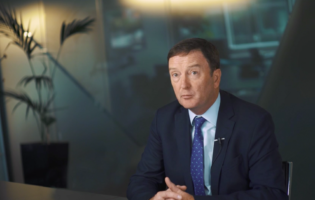CIO - Investment Outlook
 It’s not long since we wrote to you with our 2018 outlook, but already global equity markets have experienced a roller-coaster from reaching all-time highs barely a week ago to the dramatic pullback of recent days that is hitting the headlines. As such, we felt it appropriate to provide you with a summary perspective.
It’s not long since we wrote to you with our 2018 outlook, but already global equity markets have experienced a roller-coaster from reaching all-time highs barely a week ago to the dramatic pullback of recent days that is hitting the headlines. As such, we felt it appropriate to provide you with a summary perspective.
Up to recent days the US stock market had set a 90-year record for the longest period without experiencing a 5% or more setback, so to ourselves and many others a setback was not a surprise and was clearly overdue. The only question was always, what would cause it and when would it occur? To put this in context today (February 6th) equity markets are in or around where we started 2018.
Over recent days equity markets have tumbled and volatility has surged, sparked – apparently – by concerns over rising US wage inflation and subsequent rising bond yields. The first phase of the sell-off in many ways was completely understandable, reacting to stronger economic fundamentals and was merely unwinding some of the equity markets euphoric gains of the first weeks of January. In our beginning of year outlook piece we highlighted the vulnerability of bond markets to higher inflation, so we were not particularly surprised by this development. Over recent days we have endured arguably a second phase of the drawdown which is very different and predominantly an equity event (with bond markets rallying over the past 24 hours). The cause is largely technical and the focus (and blame) is being squarely focused on the fact that the dramatic rise in equity volatility of recent days has impacted many popular equity strategies of recent years such as ‘Risk Parity’ or ‘Target control Volatility’ strategies that target a certain volatility level. These have had to react to the massive spike in market volatility which forced them to sell hundreds of billions of equities to ‘square up’ and rebalance to the target volatility objective of the strategy. While we appreciate this is very technical, it hopefully explains why the move appears to be so dramatic, and to put this in context the volatility spike of recent days was greater than that experienced during the Lehman/Bear Sterns collapses, the US Government debt downgrade in 2011, the Brexit referendum result or the Flash Crash of 2010. This will likely take a few more days to settle down.
For your portfolios we remain very confident in the fundamental supports of strong economic and (in particular) earnings growth. We do expect inflation to pick up but importantly we do not forecast inflation rising to an “overheating” level this year such that it is a material challenge to central banks and therefore equity markets. As such, we do see this current ‘panic’ as a meaningful correction but not the end of the bull market. It is also a reminder that we are in the later stages of this extended economic cycle and that any excesses in the markets, such as excessive valuations, high debt levels, mispriced volatility etc are vulnerable to being exposed and punished by markets. We are ever mindful of this when constructing your portfolios and continue to emphasise better growth, better value and better quality when constructing your portfolio(s).
It is very early days in this correction to draw any discernible conclusions as to where safety is to be found within equity markets as to date the sell-off appears to be indiscriminate and those who are selling are primarily targeting liquidity rather than any particular sector and style preference. Over coming days and weeks this should become more evident and we in the meantime will continue to prudently manage your portfolios focusing on the strong fundamentals we currently like.
Noel O’Halloran
Chief Investment Officer
KBI Global Investors Ltd. is regulated by the Central Bank of Ireland and subject to limited regulation by the Financial Conduct Authority in the UK. Details about the extent of our regulation by the Financial Conduct Authority are available from us on request. KBI Global Investors (North America) Ltd is a registered investment adviser with the SEC and regulated by the Central Bank of Ireland. The views expressed in this document are expressions of opinion only and should not be construed as investment advice.




